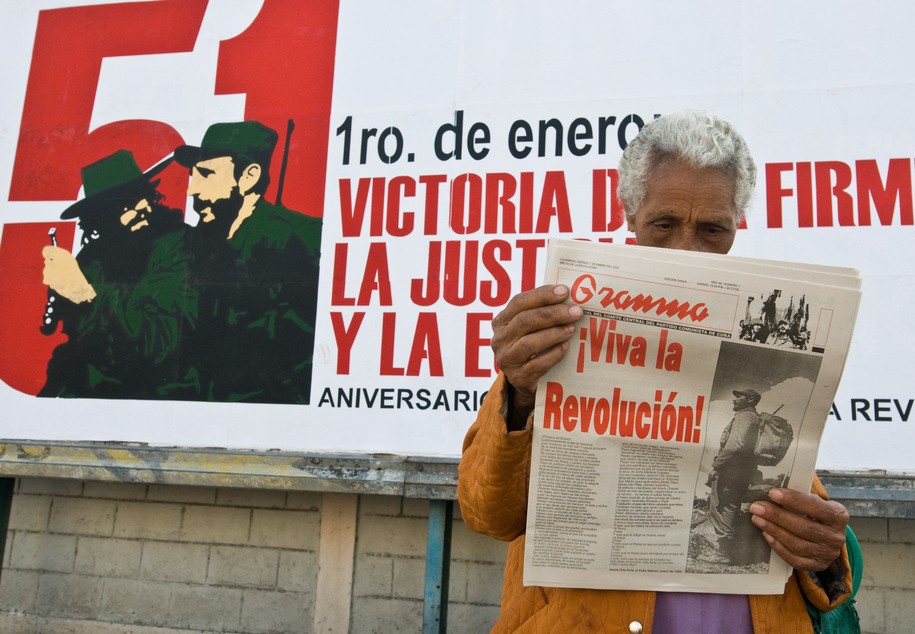
Date: 2026-02-06 Page is: DBtxt003.php txt00014207
Country: Cuba
US / Foreign Policy
Why I do not hate Cuba, and no person of color (nor their white allies) should
Burgess COMMENTARY
The United States has a virulent critic of European colonialism for a very long time. I grew up in the UK and learned about international affairs from a British perspective, and remember the way in which the United States responded to the 'Suez Crisis' in 1956 (when I was 16). While the United States celebrated as the British Empire was disassembled, the sad reality is that US foreign policy has a dark side that is little known by the general public. At one level there is inappropriate activism by clandestine services like the CIA, and also there is what might simply be called corporate colonialism.
Peter Burgess
Why I do not hate Cuba, and no person of color (nor their white allies) should

Many people look at Cuba through a communist vs. democratic lens. I purposely see it through a racial lens. If a democratic state is ostensibly oppressing someone, then what good is a democracy? Cuba was never a democracy for the vast majority of its citizens, and specifically for people of color.
Barack Obama could not say it while president of the United States, but he likely felt precisely the way many did about Cuba and acted accordingly within the confines of U.S. law. Americans, however, are programmed to hate Cuba given the stories of many Cubans who were hurt by the Castro regime.
America's policy toward Cuba was vindictive and likely did more harm to Cubans than anything the Castro regime's brutality for those who opposed the revolution could. One need not get into complete historical detail here, given that all the relevant information is readily available in online encyclopedias. The proper narrative, however, is essential.
We should all be tired of the U.S. government, most recently Donald Trump, acting as if the dictatorship in Cuba is any different than the dictatorships America supports throughout the world. In fact, Fulgencio Batista, the dictator overthrown by Castro's revolution, was no less vicious to those who opposed him and his policies that created massive wealth and income disparities. Of course, these variations followed the American color line modal as well. In other words, people of color in the aggregate were much less well-off. They were either relegated to entertainment labor or menial jobs. Lest one forgets, Fulgencio Batista was America's dictator and as such, his criminality and his vicious attacks on his people got a pass.
Those who continue to use the Castro regime's oppression, incarceration, and downright violence against the opposition as fodder should also note that many in the United States have felt that oppression for centuries right here in this 'democracy.' United States history and the present should dictate a level of humbleness, lest the ability to criticize credibly is lost.
One must remember that Castro did not want to have a negative relationship with the U.S. Because he overthrew an American puppet that maintained a vicious form of capitalism, he was shunned by Washington, specifically President Dwight D. Eisenhower. Castro was intent on nationalizing all the land that was ill-gotten by the plutocracy.
Cuba's partnership with Russia was logical. Knowing that the United States, a superpower, would likely lay waste to his government in the long run, what else could he have done?
The Cold War had no concern for the socioeconomic racial angst in Cuba or elsewhere. But here are some results that are rarely discussed: under Castro and post-Batista, people of color who were previously relegated to menial jobs became doctors, lawyers, engineers, and other professionals that were exported throughout the world. When a democracy and economic system consign a particular segment of its population to a life of less than, one should not be surprised when they seek an alternative. That alternative was better for many Cubans. It gave them a dignity they never had. And in the process, it created a healthcare system that covers every Cuban, who now all now have better medical outcomes than most in America.
The indoctrination of the American psyche to cringe at the utterance of the name Castro has outlived a usefulness that was never there. America’s sins in the aggregate are no less painful to some who continue to live a marginalized life in this democracy. Too many are shot, maimed, and killed while justice and recourse are never forthcoming.
The doors to the island should be wide open, and Cuba deserves no lesser treatment than that afforded China and Russia.